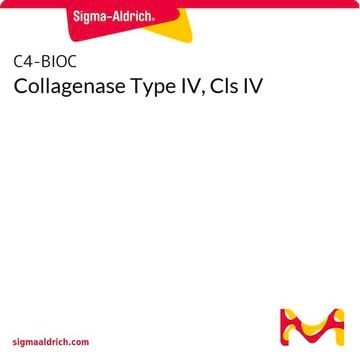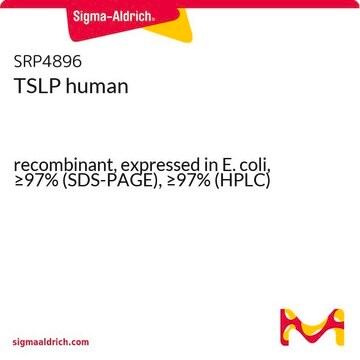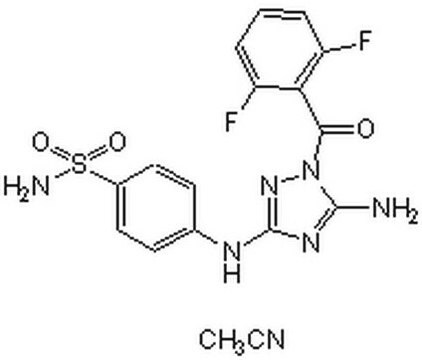C3249
CR8
≥95% (HPLC)
Sinónimos:
(2R)-2-[[9-(1-Methylethyl)-6-[[[4-(2-pyridinyl)phenyl]methyl]amino]-9H-purin-2-yl]amino]-butanol-1, (R)-2-(1-Hydroxybut-2-ylamino)-6-[4-(2-pyridyl)phenylmethylamino]-9-iso-propylpurine, C&R8
About This Item
Productos recomendados
Quality Level
assay
≥95% (HPLC)
form
powder
color
off-white
solubility
DMSO: ≥10 mg/mL
storage temp.
2-8°C
SMILES string
CC[C@H](CO)Nc1nc(NCc2ccc(cc2)-c3ccccn3)c4ncn(C(C)C)c4n1
InChI
1S/C24H29N7O/c1-4-19(14-32)28-24-29-22(21-23(30-24)31(15-27-21)16(2)3)26-13-17-8-10-18(11-9-17)20-7-5-6-12-25-20/h5-12,15-16,19,32H,4,13-14H2,1-3H3,(H2,26,28,29,30)/t19-/m1/s1
InChI key
HOCBJBNQIQQQGT-LJQANCHMSA-N
Biochem/physiol Actions
Features and Benefits
Storage Class
11 - Combustible Solids
wgk_germany
WGK 3
flash_point_f
Not applicable
flash_point_c
Not applicable
Certificados de análisis (COA)
Busque Certificados de análisis (COA) introduciendo el número de lote del producto. Los números de lote se encuentran en la etiqueta del producto después de las palabras «Lot» o «Batch»
¿Ya tiene este producto?
Encuentre la documentación para los productos que ha comprado recientemente en la Biblioteca de documentos.
Artículos
Review properties, activators and inhibitors, and available products for researching cyclin-dependent kinases (CDKs).
Review properties, activators and inhibitors, and available products for researching cyclin-dependent kinases (CDKs).
Review properties, activators and inhibitors, and available products for researching cyclin-dependent kinases (CDKs).
Review properties, activators and inhibitors, and available products for researching cyclin-dependent kinases (CDKs).
Nuestro equipo de científicos tiene experiencia en todas las áreas de investigación: Ciencias de la vida, Ciencia de los materiales, Síntesis química, Cromatografía, Analítica y muchas otras.
Póngase en contacto con el Servicio técnico







